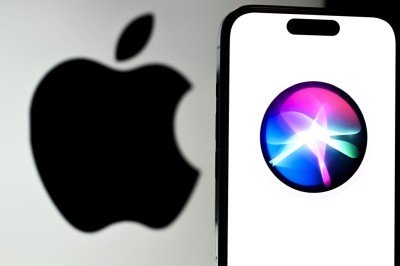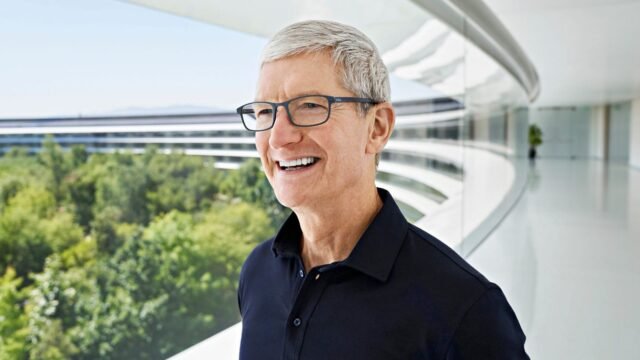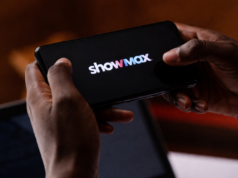In an interview that caused ripples across the tech world, Tim Cook, CEO of Apple Inc., publicly confirmed that the company is making “good progress” towards an upgraded version of its digital assistant Siri, targeting a full launch around March 2026. At the same time, Cook said Apple remains open to integrating third-party large-language-model tools such as ChatGPT and Gemini – signalling a new openness in Apple’s traditionally closed voice‐assistant ecosystem.
It’s a move that suggests Apple is recalibrating strategy at a pivotal moment: the firm is under pressure from rivals in the AI race, and Cook’s comments reflect both urgency and flexibility.
Table of Contents

Preparing Siri for the Next Generation
Apple’s Siri has long been a fixture in iPhones, iPads and Macs, but in recent years the company has faced criticism for its comparative lack of AI innovation in the voice-assistant space. Earlier efforts to bolster Siri with on-device intelligence and generative capabilities reportedly fell short of Apple’s own expectations. As Cook acknowledged, the “first-generation architecture” was “too limited,” and even the “second-generation architecture” still needed more work, according to The Indian Express.
Now, Cook says the company is back on track – aiming for a rollout of the next iteration of Siri in March 2026, aligned with an upcoming update (widely expected to be iOS 26.4). Apple’s decision to pick that date reflects a realistic timeline by industry standards, especially given the complexity of large-scale AI deployment across multiple device platforms (iPhone, iPad, Mac).
For users in Nigeria and beyond, this means Apple is preparing for Siri to become far more capable: smarter responses, better context-understanding, possibly even integration with generative AI layers that go beyond voice commands into conversational partners.
Openness to External AI: ChatGPT, Gemini and Beyond
Perhaps equally significant is Cook’s admission that Apple is open to integrating external AI solutions. He cited names like OpenAI’s ChatGPT and Google’s Gemini as examples of what Apple might consider. This is a shift from Apple’s past posture, which emphasised closed-loop design, full control over software stacks, and on-device processing for privacy.
Cook also hinted at potential M&A (mergers and acquisitions) if a move “advances our roadmap”. This suggests Apple might either partner with or acquire AI-specialist companies to accelerate its Siri ambitions.
In practical terms for Nigerian users, this openness could translate into Siri being more flexible: perhaps pulling from powerful cloud-based language models, linking to external AI services, or offering deeper conversational capabilities. For developers, it points to potential future scenarios where Siri might tap into other AI ecosystems rather than being solely Apple-owned.

Why This Matters for Apple and the Broader Market
There are several strategic layers to what is being revealed:
- Competitive pressure: Apple has seen competitors rush ahead with AI assistants and generative tools. By committing to 2026, Apple is signalling it will not be left behind.
- Privacy and architecture trade-offs: Apple’s historic focus on on-device intelligence is challenged by the sheer resource demands of next-generation AI. Opening out to external models raises questions about data flow, latency and user privacy – all areas Apple emphasises strongly.
- Global implications: For markets like Nigeria, where mobile devices and digital assistants are increasingly central to everyday life, enhanced Siri could reshape how users engage with technology – voice commands, local-language support, and smarter assistance.
- Ecosystem strategy: By hinting at M&A and external integration, Apple is acknowledging it may not build everything in-house. That could change how accessory makers, app developers and services integrate with Apple’s platform.
Cook also reminded that Apple is managing other business pressures – for instance tariffs adding US$1.1 billion in extra cost in the most recent quarter, and an estimated US$1.4 billion in the upcoming quarter. So the drive to get Siri right is wrapped into broader financial, regulatory and supply-chain calculations.
What to Watch and What It Means For You
For those of us in Nigeria and globally, the practical signs to keep an eye on include:
- Launch timeframe: Mark your calendars for March 2026, when Apple is positioning the next-gen Siri to go live.
- Device compatibility: The update is likely to roll out with iOS 26.4 and possibly corresponding updates to iPad OS and macOS – meaning you’ll want recent hardware to take full advantage.
- Data and privacy policy: As Apple opens to external AI models, watch how it addresses data jurisdiction, user privacy, and localised support (e.g., for African English, pidgin, Yoruba/Hausa/Igbo if applicable).
- Third-party integration: Developers and service providers in Nigeria might see new opportunities to plug into a more flexible Siri ecosystem – voice‐apps, regional language models, contextual assistants.
- Affordability and accessibility: While Apple devices are premium-priced, smarter voice assistants can open up value for users who rely on voice input, accessibility features or low-touch interfaces in unpredictable power/network environments often seen in Africa.
From a personal perspective, this announcement feels like Apple laying the groundwork for a shift from command-based voice helper to a conversational partner: one that understands context, anticipates needs, links across services and responds in human-like dialogue. Growing up using a slightly stilted voice assistant myself, I’m particularly excited for a voice assistant that “gets” the local accent, the local use-case, and maybe one day even responds in Nigerian Pidgin or regional dialects.

Conclusion
Apple is signalling a bold step: a re-engineered Siri ready for 2026, openness to external AI integrations like ChatGPT and Gemini, and a broader strategic shift in how the company approaches intelligence, voice and assistance. For users, developers and markets like Nigeria, it’s an invitation to prepare for what could be the next wave in voice-interaction evolution.
Join Our Social Media Channels:
WhatsApp: NaijaEyes
Facebook: NaijaEyes
Twitter: NaijaEyes
Instagram: NaijaEyes
TikTok: NaijaEyes





